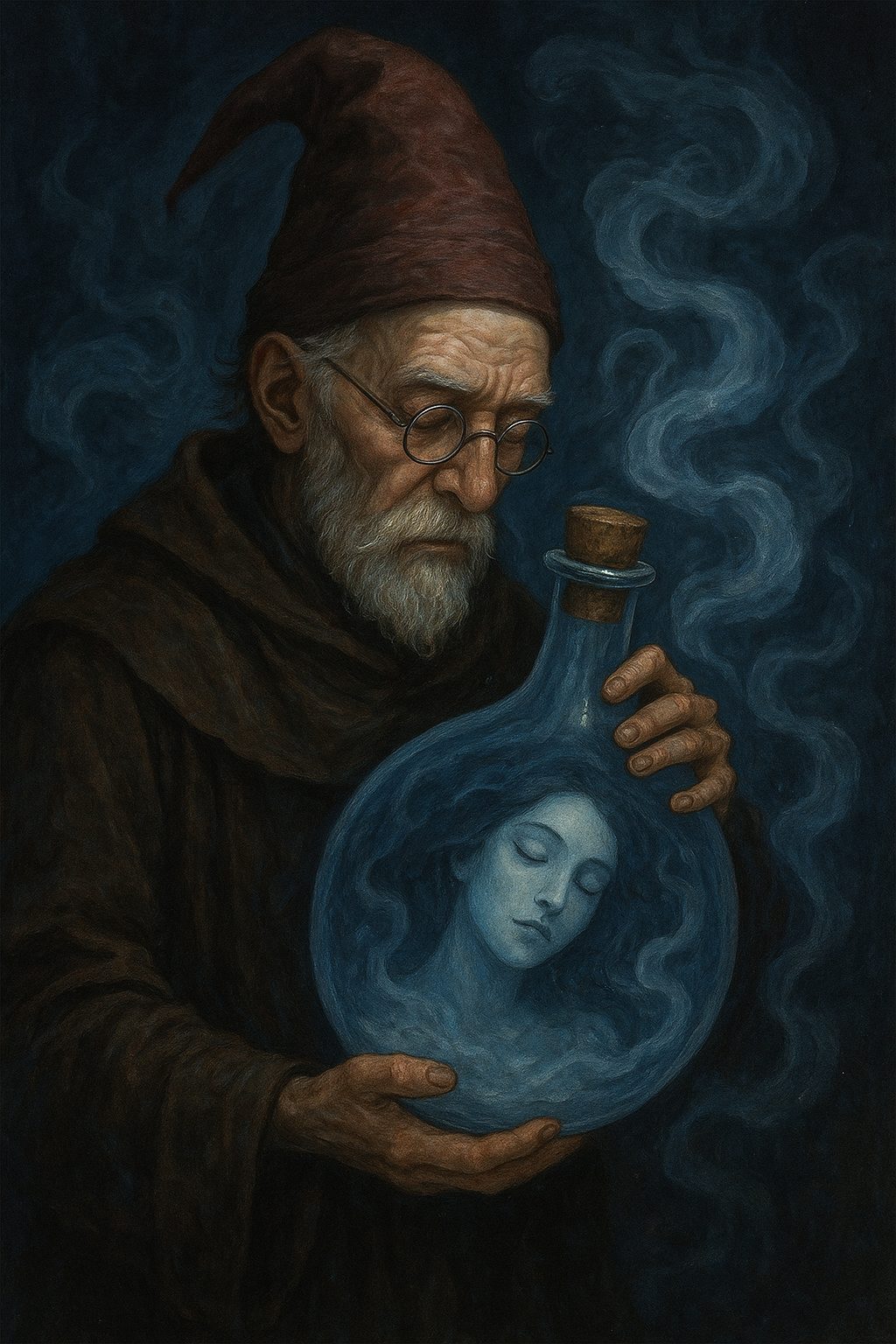Kaelen’s shop was an anomaly, a quiet pocket tucked between a crypto-laundromat and a drone-delivery depot. Out on the perpetually twilight streets, the city hummed with the electric anxieties of hustle culture, a place where burnout was a status symbol. His patrons didn’t find him through an algorithm; they found him through whispers, when the endless doomscrolling became too much and the prescribed dopamine detox of a weekend in the woods was a luxury no one could afford.
His first customer of the day was Elara. Her eyes, shadowed from blue-light overexposure, scanned Kaelen’s shelves. They were lined with hand-blown glass bottles, each containing a shimmering, mercury-like substance. It wasn’t a liquid, not really. It was a potential, a promise.
“I have a big presentation,” she said, her voice thin. “The main character energy is just… gone. I can’t think. The noise.” She didn’t mean audible noise. She meant the phantom pings, the pressure of the remote work group chat, the constant, low-grade hum of inadequacy.
Kaelen nodded, his own quiet a stark contrast to her frazzled state. He took down a small, cobalt-blue vial. He’d distilled this batch from the memory of a snow-covered forest at dawn. It held the sound of flakes landing on pine needles and a sleeping fox’s breath. This was his alchemy. He didn’t turn lead to gold; he transmuted the cacophony of modern life into pure, unadulterated quiet.
He handed it to her. “Uncork it when you need to,” he instructed. “Just for a moment. It’s not for quiet quitting your whole life.”
Elara paid with a tap of her device and left. Later that day, trapped in a glass-walled meeting room, feeling the parasocial pressure of her boss’s expectations, she twisted the cork. For sixty seconds, the entire world went deaf. The frantic beating of her own heart, the hum of the server farm two floors below, the imagined chatter of her competitors—all of it vanished. In its place was a profound stillness. A core memory surfaced: her, as a child, hiding under a heavy blanket, feeling perfectly safe. When the sound rushed back in, her thoughts were clear. She nailed the presentation.
The effect was too powerful to remain a secret. What started as Kaelen’s side hustle exploded. A vibe shift swept the city. His bottled silence became the ultimate marker of authenticity. People hoarded it. The supply chain, which was just Kaelen gathering memories of empty libraries and abandoned cathedrals, couldn’t cope. Prices soared. A bottle of “Deep Ocean Trench” was worth more than a week’s wages.
He saw his creation everywhere. Couples on dates, instead of talking, would each uncork a small bottle to enjoy a moment of shared, artificial peace. Office workers used it to create mental firewalls against their managers. It was the ultimate tool for self-care, but it was becoming a weapon for avoidance.
The breaking point for Kaelen came when he saw a mother in a park. Her child was laughing, a pure, uninhibited sound. But the mother didn’t hear it. She had a small, custom-made pearl earring, a micro-vial of Kaelen’s silence, uncorked and active. She was staring at her child with a serene, detached smile, utterly sealed off from the beautiful reality of the moment. She was missing it. They were all missing it.
His cure for the digital plague had become a digital plague itself, a deepfake of tranquility.
That night, Kaelen returned to his lab. He didn’t brew a new silence. He worked on an antidote. He gathered the most potent sounds he could find: a baby’s first cry, the roar of a crowd at a winning goal, the strain of a cello, the clumsy, heartfelt confession of a first love. He didn’t bottle them. He distilled them into something else, a resonant frequency, a single, complex prompt.
He didn’t release it as a product. He uploaded it, an invisible packet of data piggybacking on the city’s ubiquitous network.
The next morning, the change began. When a stock trader uncorked his vial of “Lunar Farside” to escape a market crash, he didn’t get silence. He got the sound of rain on a tin roof. A graphic designer hoping to block out her loud colleagues was met with the gentle crackle of a vinyl record. The woman in the park twisted her earring and, instead of a void, she heard her child’s laughter, amplified and impossibly clear.
The silence had spoiled. The bottles were now filled with the very thing people were trying to escape: the messy, unpredictable, and beautiful noise of life. Panic, then confusion, then, slowly, acceptance. People started talking again, arguing, laughing, listening.
Kaelen packed a single bag. On his workbench, he left one last bottle. This one was clear, and inside, the silver substance swirled gently. It was the silence of his own quiet satisfaction. He didn’t uncork it. He simply looked at it, then walked out of his shop and into the newly noisy streets, finally ready to hear them.

Leave a Reply